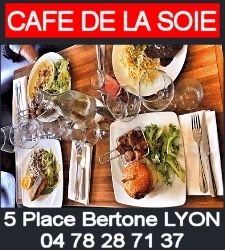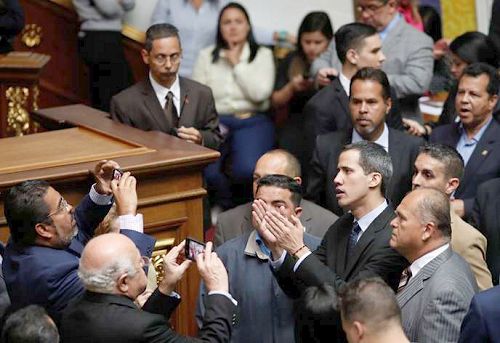TOWARDS AN OUTCOME OF A PACIFIC CRISIS
LESS AND LESS PROBABLE IN VENEZUELA |
|
| In Venezuela, the standoff continues between the incumbent president Nicolas Maduro and his opponent, self-proclaimed interim president Juan Guaido. The situation has become increasingly critical since the country is hit by a huge blackout. The country is sinking into a deep crisis.
Since Thursday, March 7, the country is plunged into the dark, economic activity is stopped and health facilities are paralyzed so that in less than 48 hours, fifteen people with kidney disease died because of lack of dialysis. The people who are lacking everything are exhausted.
What will be the outcome of this crisis? Who of President Nicolas Maduro or his rival Juan Guaido will win the fight for power? Juan Guaido and the peaceful transition? Nicolas Maduro has only 14% positive opinions, according to the Datanalisis survey institute. The current conditions are such that a large part of the population sees Juan Guaido as a peaceful and democratic solution. But will it succeed? Admittedly the opponent has gained such renown that the authorities could not afford to stop him on his return when he had violated last week a ban on leaving the territory. Juan Guaido then tried to bring into the country tons of humanitarian aid offered mainly by the United States and blocked by the armed forces on the Colombian border. But Mr. Maduro and his army held out - the head of state saw it as a disguised attempt at outside military intervention. Following this failure, the parliamentarian immediately promised to intensify the popular mobilization and diplomatic isolation of the Maduro government. "I am announcing a popular tour and the diplomatic isolation of the Maduro government. "I am announcing a tour, my tour and that of all the deputies (across the country) to make you come to Caracas in a definitive way", he launched on March 9 in front of thousands of partisans descended in the streets of the capital. "After the end of this tour (...) we will announce the date when all together we will walk on Caracas", he added. He promised a march on the capital. He has even said he is ready to support the strike of the public sector unions. In the army returns the role of referee ... This increased pressure has the sole purpose of bringing the high command of the army to let go Maduro and, ultimately, to bring down the regime, paving the way for a peaceful transition and elections. According to Datanalisis, Nicolas Maduro has only 14% positive opinions, but he can always count on the loyalty of the army. While 700 military and police have already joined Juan Guaido in recent weeks and defected across the border with Brazil and Colombia, no senior officer has gone on his side. Venezuela has about 365,000 military and police officers. To convince, it would require a negotiation granting "specific guarantees" to officers involved in corruption and human rights violations. Under these conditions, the transition would take longer but it would increase the probability that it would be non-violent, according to the expert Michael Shifter. On the other hand "The scenario of a military intervention led by the United States seems every day less probable but can not be dismissed according to the evolution of the situation", warns this analyst. US sanctions - including the oil embargo - further aggravate the difficulties in the daily life of the population. Before possibly causing the fall of the government, they risk, "sooner or later, to damage the image of Guaido," warns Luis Vicente Leon, Venezuelan analyst and director of the institute Datanalisis. Maduro bets in a sense on the "disenchantment" of Mr. Guaido that could occur in the long run, according to political scientist Luis Salamanca. The more time passes and the more democratic and peaceful transition to exit the country from the crisis seems to move away. |
|
| Joanne Courbet for DayNewsWorld | |
 |
|




